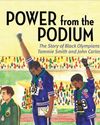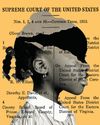CATEGORIES
Categorías
Últimas historias

Amina Rachman's life of service and activism
A headline about Malcolm X broke through my mass-media boundaries recently, who was assassinated on Feb. 21, 1965, while delivering a speech in Manhattan.

NY and NJ women’s college hoops teams head into postseason action
It's that time of year when Division I college basketball heads into what Columbia University coach Megan Griffith calls a new season. It’s win or go home as the top teams take on postseason action.

U.S. bobsledders reach medal podium at 2025 World Championships
The 2025 IBSF Bobsled and Skeleton World Championships in Lake Placid, New York, wrapped up last weekend with U.S. athletes on the podium.

Cure Violence prevented 1,567 shootings but needs support, says NYC Comptroller
Amsterdam News Staff, Report for America Corps Member

Q&A with mayoral candidate Zohran K.Mamdani
New York State Assemblymember Zohran Kwame Mamdani, 33, is a standout candidate in this year's crowded mayoral race against the incumbent Eric Adams.

Union march pushes back against Trump/Musk job cuts
Laid-off federal workers, members of several New York City labor unions, and community groups marched in downtown Manhattan on Saturday, March 15.

Cumbre Afro at CENTRO looks to unite cultures from Puerto Rico to Harlem
This year, the University of Puerto Rico’s Cumbre Afro is headed to Harlem. “CENTRO x Cumbre — Sites of Black Memory: Our Ancestors, Archives, and Arts,” the fourth annual Cumbre Afro, or Afro Summit, will conclude with events at East Harlem's Center for Puerto Rican Studies (CENTRO) at Hunter College.

With Mitchell Robinson back in the fold, the Knicks expand their rotation
It was much ado about nothing. A national media topic of discussion that was really a non-story at this juncture of the long NBA season when Knicks forward Mikal Bridges suggested head coach Tom Thibodeau utilize the bench players more.

Six immigration headlines you need to know this week
In the ever-changing world of U.S. immigration policy, where chaos and controversy often take center stage, six major developments have shaped the landscape this past week. From legal battles to policy shifts, here's what you need to know.

Afro Bolivian women... fighting for a better world
South America's Republic of Bolivia has a significant African presence. Africans were kidnapped and enslaved there beginning in the 17th century; 30,000 alone were brought to the high-altitude city of Potosí to work in the wealth-producing silver mines.

Book Review:'Power from the Podium'
As is customary, the Afrikan Healing Circle, a percussion choir, opened the ceremony at a recent commemoration of El-Hajj Malik El-Shabazz (Malcolm X) at the Shabazz Center in Washington Heights.

Williams and Brewer blast Adams, Trump at City Hall rally over school funding
Educators, parents, and politicians rallied outside City Hall, condemning Mayor Eric Adams’ sweeping education budget cuts as they blasted his perceived coziness with President Donald Trump amid federal education rollbacks.

Muslim NYers on celebrating Ramadan during times of constitutional crisis
Despite political unrest sowing seeds of fear in New York City and overseas, Muslim communities are determined to continue observing their holiest month of Ramadan.

Current and future track stars show up and show out at New Balance Nationals
Track and field diehards in the New York tri-state area, used to make the yearly pilgrimage to the Armory in Washington Heights, Manhattan, to get a close and first-hand look at some of the sport's best young stars at the New Balance Nationals Indoor championships.

The Rose win Unrivaled women's basketball league's inaugural title
Coming off a seminal 28th season, the WNBA will hold its annual draft in less than a month on April 14 at The Shed at Hudson Yards in Midtown Manhattan.

TURTLEBOY WILL NOT BE STOPPED
A profane blogger believes an innocent woman is being framed for murder. He'll do anything to prove he's right—and terrorize anyone who says he's wrong.

The Cranky Visionary
Albert Barnes believed in the liberating power of art—but you had to look at it his way.

The Internet Can Still Be Good
Reddit, of all places, suggests how.

KOSHER SALT IS ACTUALLY JUST BIG SALT
How did it become so popular?

THE ERA OF MIGHT MAKES RIGHT
In the MAGA vision of the national interest, America will be more like Russia, China, and Iran.

Growing Up Murdoch
Inside the family fight that will determine the future of conservative media

Was Integration the Wrong Goal?
Why some mainstream Black intellectuals are giving up on Brown v. Board of Education

The Last Great Yiddish Novel
Chaim Grade's Sons and Daughters rescues a destroyed world.

The Girls of Summer
PHOTOGRAPHS BY ZACK WITTMAN 23 The Girls of Summer WOMEN HAVE ALWAYS LOVED AMERICA'S PASTIME. IT HAS NEVER LOVED THEM BACK.

THE FEAR ECONOMY
How Trump is exploiting American capitalism for personal power

On Track
The time I spent working on the railroad changed the course of my life.

THE HAIRBRUSH RENAISSANCE IS HERE
Never mind the cheap drugstore options you have stashed in a drawer. The latest wave of beautifully crafted brushes are a return to a bygone era of beauty.

BEST IN CLASS
Forget dominating an entire fashion industry. These brands are satisfied with perfecting a single category.

HODA KOTB HAD HER DREAM JOB THEN DECIDED TO WALK AWAY
The former TODAY show co-anchor discusses how turning 60 changed her perspective of what's possible personally and professionally. And why you need a “mini plan” before you quit anything.

THE MELANCHOLIC SOUND OF SUCCESS
After publishing a best-selling memoir and receiving two Grammy nominations for her album Jubilee, Michelle Zauner (also known as Japanese Breakfast) still felt sad—so she decided to write about it.
